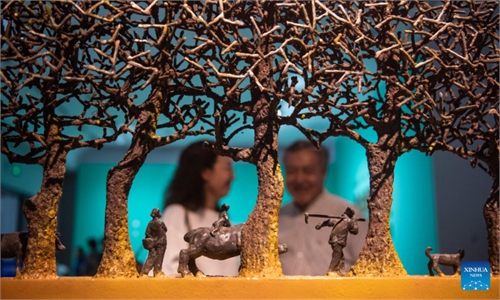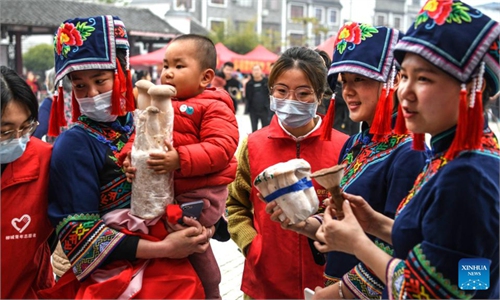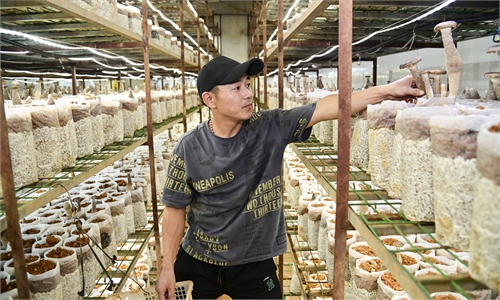Sweet revitalization: former revolutionary base prospers through unique agriculture, successful marketing
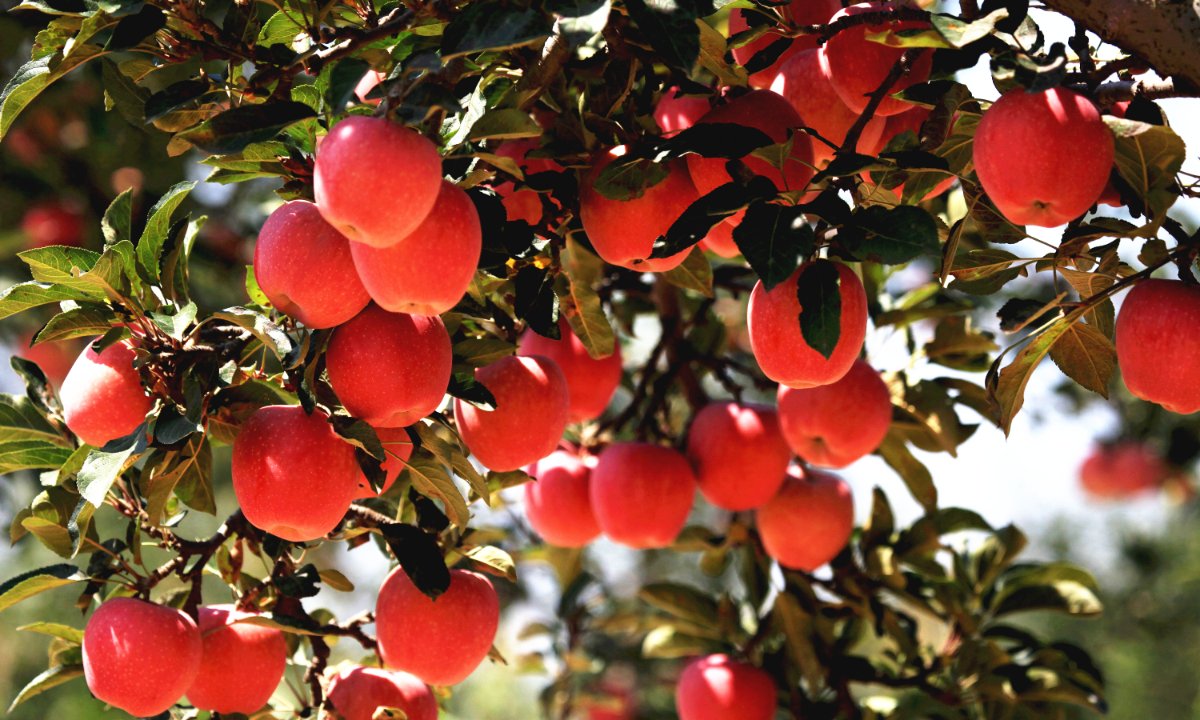
Luochuan apples File photo: courtesy of Luochuan county authority
Yan'an is known to most people as an old, important revolutionary base for the Communist Party of China (CPC) as it hosted the then headquarters of the CPC and was the center of the Communist revolution from 1935 to 1948, but this mountainous city in Northwest China's Shaanxi has other things to offer than its richness in revolutionary history and spirits - the sweet and juicy Luochuan apples that have gained domestic fame and are sold to some 20 countries and regions worldwide.
Luochuan is a county of Yan'an where a key meeting in the CPC history was held in August 1937 to determine the Party's guideline of keeping political and military independence and mobilizing the people in the united front against Japanese aggression.
More than eight decades later, Luochuan has become a model again in the nation's latest strategy toward rural revitalization. In the process, Asi village played a pioneering role in developing scientific agriculture, eco-tourism and branding local quality products through online platforms, to boost local growth and benefit the people.
Arriving in early August, the Global Times reporter saw numerous khaki-colored bags hanging on short and verdant trees in fields alongside the village roads. But the reporter also noticed a strange thing - there were white fishnet-like object attached to cement poles enacted in the trees and iron chains connected the poles from the top.
The short apple trees looked very different from a traditional tall apple tree. Asi village Party chief Li Baoyin told the Global Times that they are an adapted apple strain which is shorter, having smaller crown, and quicker to bear fruits.
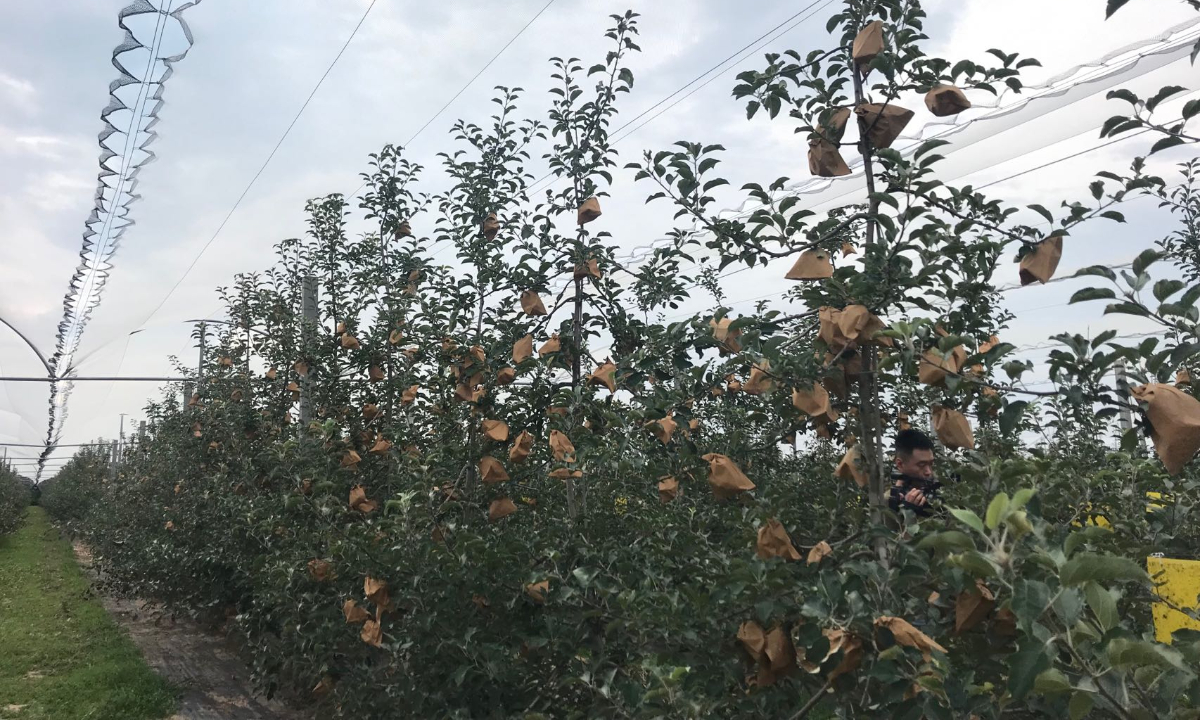
Apple are bagged with nets hanging above to prevent hailstorms in Luochuan in Yan'an, Northwest China's Shaanxi Province on August 4, 2022. Photo: Zhang Han/GT
Apples are usually bagged to prevent birds and insects from eating them. The bags are removed one to two weeks to allow sunlight to paint the apples red. A shorter plant and smaller crown mean the bagging and unbagging will be easier and the task needs fewer than half of the personnel, the Global Times learned.
The fishnet-like object is established to prevent hailstorms, which occur every so often in Shaanxi in late summer and early fall and could heavily impact the yields.
Farmers and agriculture specialists have close communications on strain cultivating and caretaking techniques to ensure successful yields, Qu Juntao, a research fellow from Luochuan apple industry administration, told the Global Times. Local weather administration will offer reminders for apple growth, such as extreme heat or hailstorm.
Saplings of the new strain are 50 yuan ($7.4) pricier than normal strain, and the structures including cement poles and nets cost 4,200 yuan a mu (0.07 hectare) after government subsidies. But it can bear fruits the year it is planted and reduced personnel also saves a lot, Li said. Farmers can get roughly 30,000 yuan from one mu of the new strain.
As of 2021, 530,000 out of 640,000 mu farmlands are apple trees, of which 120,000 mu are the shorter strain. Farmers' disposable income exceeded the province's average for rural areas and the industry volume totals 11 billion yuan, some of which are contributed by fruit pickup and eco-tourism.
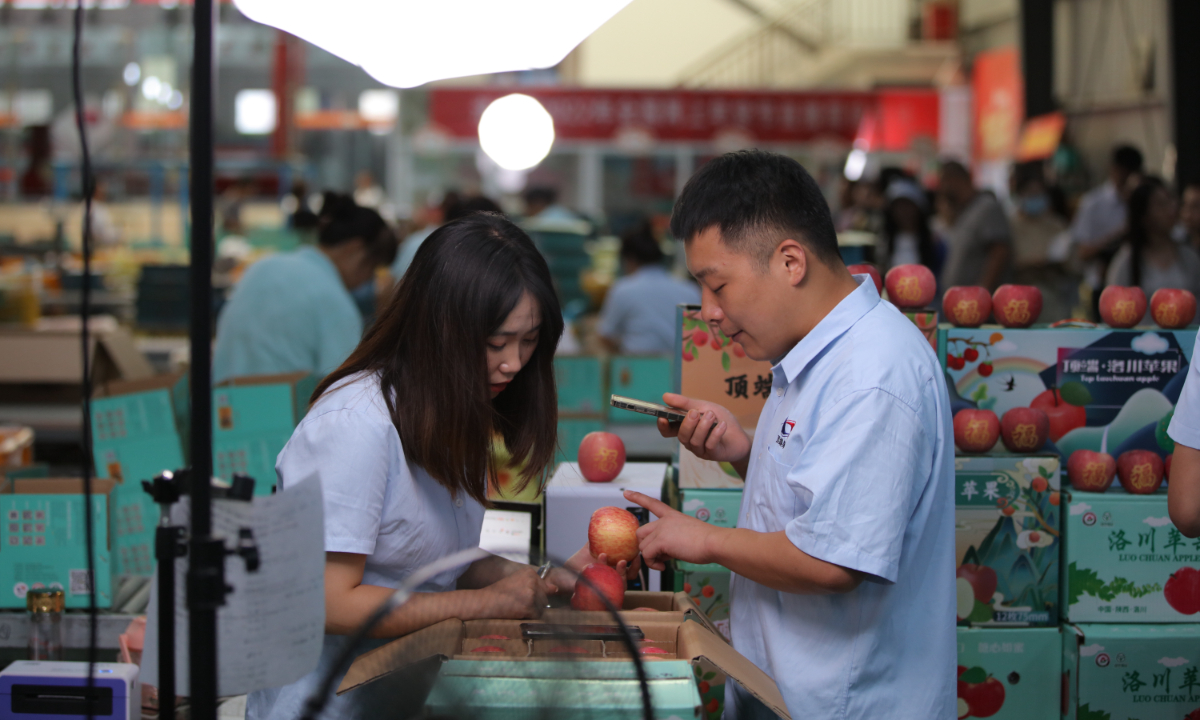
Staff sell Luochuan apples through livestreaming in Luochuan in Yan'an, Northwest China's Shaanxi Province on August 4, 2022. Photo: Xiao Yi/ China Economic Weekly
It was Asi villager Li Xin'an who transported some 200 apple saplings from a village 360 kilometers away in 1947, to improve the livelihoods of the locals as the poor soil could barely produce enough grains. More than 70 years later, every family [in the village] plants apples and Asi Village is a pioneer in Luochuan's apple industry, village Party chief Li said proudly. "We don't need to worry about sales because distributors nationwide come to buy or place orders online."
Luochuan apple was the supplier of Beijing 2008 Summer Olympics and the brand is worth 68 billion yuan, the Global Times learned from local government. Sharing the name of Luochuan apple, firms in the county have built 143 offline retail stores, 42 wholesales stores and 3,600 online stores. The online stores and livestreaming promotion have largely boosted fame and sales of Luochuan apples.
The county has 36 automatic apple picking lines to select quality fruits and cold stores with a capacity of 680,000 tons in total to ensure continuous supply through the year. At a local apple processing firm, the Global Times leaned the cold store can extend sales of apples to 18 months with the original taste mostly preserved.
Local firms extend the industry chain to increase profit margins and boost local competitiveness by producing apple cider and apple crisps.
After a successful stunt in the domestic market, Luochuan apple is exploring overseas markets. Luochuan, as representative of Shaanxi, obtained an approval from the US Department of Agriculture to export apples to the country in 2014 and is currently trading through agent companies.
These apples also reach tables of consumers in dozens of countries and regions including Kazakhstan, Russia, the ASEAN member states, India as well the UK, Canada and Argentina.
With upgrade in sapling, farming, processing, distribution and branding, apples have become the key to the fortune for Luochuan.
In Shaanxi, there are more places like Luochuan - exploring the potential of a local specialty via agricultural technology, prolonged industry chain, better branding and selling techniques, to figure out a rural revitalization path that is suitable for the reality.
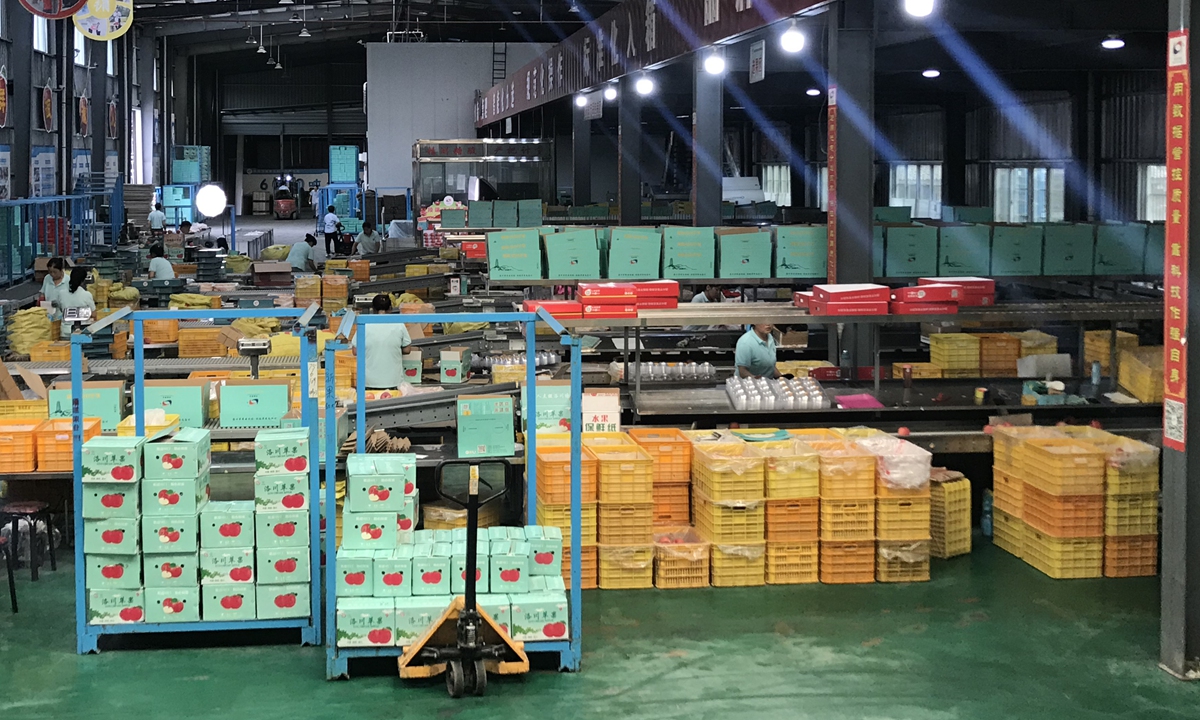
An apple selection and packaging plant in Luochuan of Yan'an, Northwest China's Shaanxi Province Photo: Zhang Han/GT
